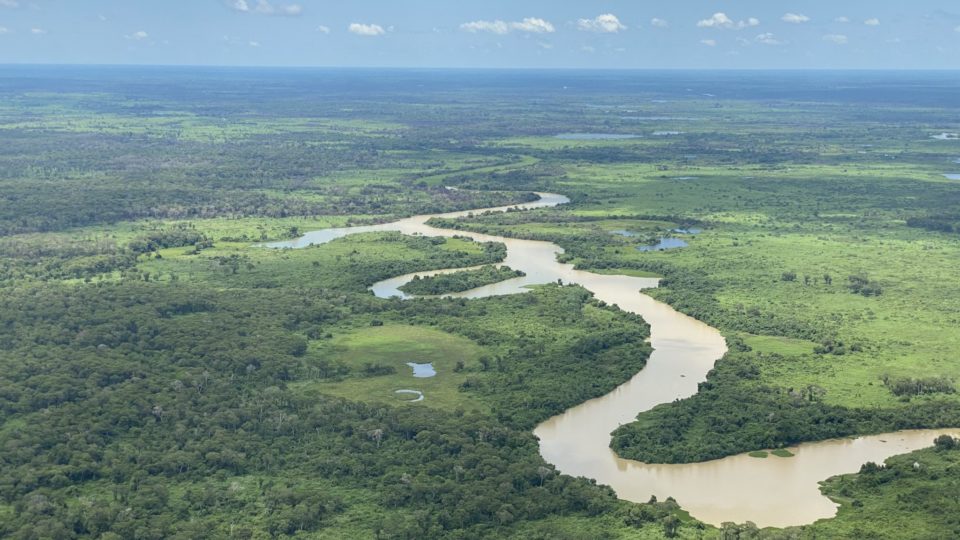The European Parliament and Council today reached a provisional agreement on an EU regulation on deforestation-free supply chains. The text fails to include wetlands and high-carbon ecosystems like peatlands in which many of the products covered by the proposal are also produced. Including these important ecosystems would further strengthen the climate, biodiversity and human rights aims of the regulation.
According to the agreed text, companies will be obliged to verify and issue a so-called “due diligence” statement that goods placed on the EU market have not led to deforestation and forest degradation anywhere in the world after 31 December 2020. The agreed text does not ban products from any country or commodity but for a product to be considered it needs to comply with the requirement. Companies will also have to ensure that the human rights of indigenous peoples are respected.
This is a positive step towards the protection nature and human rights and the fight against climate change. What decision makers failed to do was to include wetlands and high-carbon ecosystems like peatlands in the scope of the law.
Many of the products and commodities covered by the new legislation are also produced on wetlands for which they are drained and degraded. These include cattle for meat or dairy production, cocoa, coffee, palm-oil, soya and wood, including products that contain, have been fed with or have been made using these commodities, such as leather, chocolate, furniture, rubber, charcoal, printed paper products and a number of palm oil derivatives.
The new law excludes “other wooded lands” such as savannahs, wetlands, peatlands or biodiversity rich grasslands from its scope; however it requests the European Commission to reassess whether and how to include these other ecosystem types no later than one year after the regulation enters into force and within two years if other ecosystems with high-carbon storage and biodiversity value can be included.
We expect the European Commission to produce an impact assessment as soon as possible because the law, as it currently stands, could force farmers, smallholders and communities to convert and drain wetlands further. This places important biomes such as the Pantanal at high risk of further destruction and at a rapid rate.
In Ramsar Resolution XIII.19 on sustainable agriculture in wetlands, 35% of wetlands for which data is available have been lost since 1970, a rate three times greater than that of forests (Global Outlook on Wetlands 2018). One of the main drivers of the loss and degradation of wetlands, as indicated by the Millennium Ecosystem Assessment (2005), has been the clearing and drainage of land, including for agricultural production.
As our CEO Jane Madgwick stated in a recent interview, drainage is a “huge part” of the problem and it is just as easy to identify land that has been drained as it is to spot an area that has been cleared of forest. Not including wetlands such as peatlands in the regulation would mean more destruction and drainage of these highly valuable ecosystems, leading to greater risk of droughts, floods and fires.
The Global Land Outlook published in April 2022 by the secretariat of the UN Convention to Combat Desertification stresses that wetlands are in long-term decline, averaging losses at three times the rate of global forest loss in recent decades. It lists drainage in its top four threats to land degradation.
New and continued drainage of wetlands is the biggest threat to biodiversity and the climate, due to the release of greenhouse gas emissions from drained peatland. Those emissions stop as soon as the land is waterlogged again. Delaying protection for peatlands could exacerbate the danger by incentivising farmers to drain land where they would otherwise have cleared forest.
Wetlands International Europe and numerous other NGOs have been asking for the inclusion of wetlands in the scope of the regulation:
EN_Civil Society Position Statement (February 2022)
CSO Statement_EN (October 2022)
Wetlands International is the leading global organisation for the restoration and conservation of wetlands. Our global network provides data and evidence that further drainage on wetlands for the production of commodities will contribute to the loss of these important ecosystems, with huge impacts on health, food security, water security, biodiversity and the communities that rely on these ecosystems.
We and our partners remain at total disposal of EU decision-makers to support them with input and facts to push for a swift inclusion of wetlands in the deforestation-free regulation.

